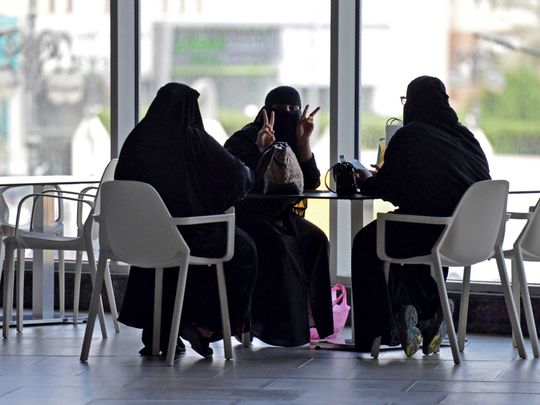
Just as in other countries of the GCC, Saudi Arabia began relaxing some of the stringent steps the authorities had taken to combat the spread of the COVID-19 virus. This happened a little over two weeks ago, when curfew times were relaxed and more public places had reopened for the convenience of the public.
With a country where a reported 70 per cent of the population is below the age of 30, that message seemed to have fallen on deaf ears. No sooner than the curbs had been lifted, that the streets and malls were packed with people, the beaches crowded with extended families seeking an outing together after a period of isolation, and dinner parties held to celebrate what many considered was the end of the battle.
It doesn’t take a rocket scientist to figure what happened next. The figures of people infected with the virus began to rise dramatically soon afterward. Where once the daily count hung around the 1,000 mark of infections, it began to creep up daily to more than three times the number in less than three weeks. The death rate of those afflicted with the coronavirus jumped from less than 10 fatalities daily to the high thirties today, all in a matter of not months but days.
Throwing caution to the wind
While the authorities had detailed a number of steps and norms that had to be observed when one was out and about, that soon went with the wind. It seemed for a while that our youthful population felt for a moment that the authorities had truly laid the threat of the virus to rest and now it was party time. Saudi Arabia was not unique in experiencing the resurgence and rise of the numbers. Bahrain and Kuwait reported it as well following the easing of the curbs and reports from Qatar indicated that they too were experiencing a dramatic increase in numbers.
Reacting to the rapid rise in numbers, the Saudi government reacted with alacrity and introduced several measures to stem the flow. Face masks in public became mandatory, with offenders being fined 1,000 Saudi riyals ($270, Dh990) for each violation. Shops and stores that did not police the premises and ensure that social distancing rules were being observed were slapped with a hefty fine or shut down for non-compliance. The curfew hours were reinforced in the cosmopolitan city of Jeddah, where the death rate was higher than the rest of the kingdom. Patrol cars were out and about to ensure compliance and this time around, the government wasn’t leaving it up to the people.
The has left many people fuming and has been the subject of debate among many Saudis who realise that it was them and them alone that contributed to the rise in numbers. While the initial virus figures indicated a larger proportion of expatriates infected or dead, the more recent figures show that a predominant number of the infected cases are Saudis, many of whom are women who had taken to socialising once the curbs had been briefly lifted and spread the virus from house to house.
The debate rages over the lack of judgement and civic responsibility demonstrated by people towards the welfare of others. Many critics of such behaviour were appreciative of the government’s stance towards controlling the virus from its inception but had harsh words for their compatriots who chose to flout the laws and not observe the cautionary practices spelt out by the authorities.
No one can claim ignorance of the rules, as citizens and residents alike were constantly bombarded on all media fronts with messages from the Ministries of Health and the Interior on proper practices both in and out of the house. And the argument that this increase is a global thing does not wash as some countries have shown a dramatic drop and potential end to the COVID-19 threat. Among them stand out New Zealand, Switzerland, Iceland, and China where it perhaps all began.
How did they do it? It wasn’t their government alone that took the credit. The people played their part, followed the rules, and exercised their sense of civic responsibility.
— Tariq A. Al Maeena is a Saudi socio-political commentator. He lives in Jeddah, Saudi Arabia. Twitter: @talmaeena.







